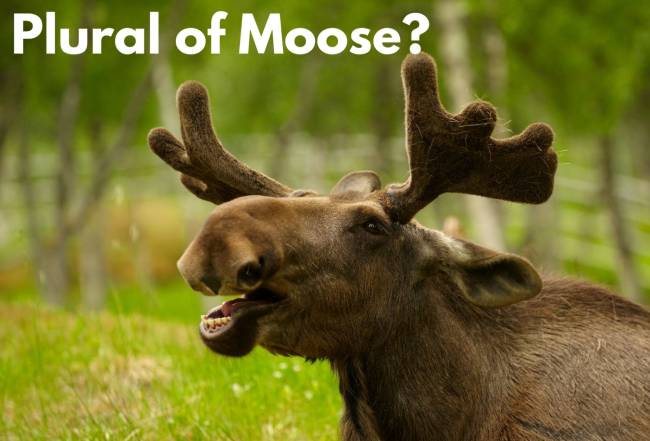It is not always the case that the English language follows its own rules. Etymologies come from all over the world, making it a melting pot of etymologies. Silent letters in words like “tsunami” and “rendezvous” are carried over from Japanese and French, respectively.
As a result of the different origins of words, there is also a lot of strange, irregular-sounding plurals. We have to look back through the history of English to figure out why the plural of goose is geese…but the plural of moose is not meese. If you’re curious about silent letters, find out more here.

Table of Contents
What is the plural of moose?
Those of you not from Alaska, Canada, or the northeastern U.S. may not have paid much attention to the plural form of “moose.” You may have seen just one moose, let alone multiple. What’s up, meese?
While one honking bird whose singular form rhymes with “moose” might suggest otherwise, the plural form of “moose” is simply “moose.” One moose, three moose, a herd of moose. In Oxford Dictionaries, “moose” is considered a “loanword,” which means that it was adapted from a foreign language with little or no modification. While other words in the English language are also loanwords, “moose” is a relatively new addition, originating from several Native American languages. See these wacky but real names for animal groups for more fascinating names.
Why is the plural of goose “geese”?
Where did the word “goose” come from, as well as its unusual plural? Despite the fact that “goose” and “moose” sound similar, they are not related words. As a matter of fact, they come from different languages and come from different periods in history.
